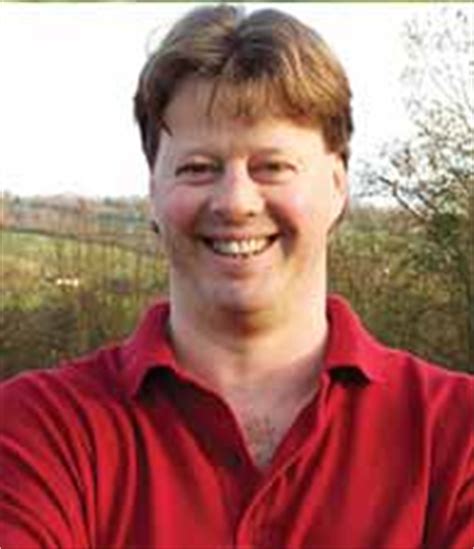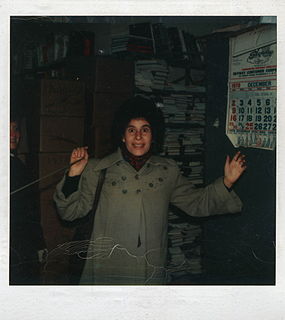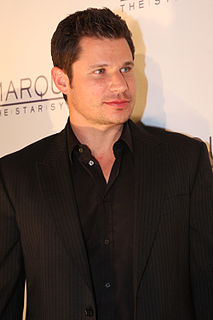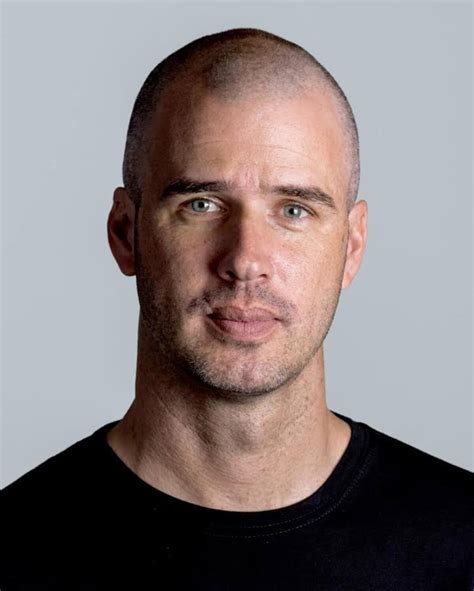A Quote by Mark Buchanan
The examen is a form of personal inventory. At day’s end, spend time in prayerful reflection on your day: your comings and goings, routines and disruptions, work and play, discoveries and disappointments. Think about who you met, or missed. Think about your moments of aloneness. In all, ask two questions: when was I most alive, most present, most filled and fulfilled today? And when was I most taxed, stressed, distracted, depleted today? A simpler, and more spiritually focused, version of those questions: when did I feel closest to God, and when farthest?
Quote Topics
About
Alive
Ask
Closest
Day
Depleted
Did
Disappointments
Discoveries
Distracted
End
Farthest
Feel
Filled
Focused
Form
Fulfilled
God
Inventory
Met
Missed
Moments
More
Most
Personal
Play
Prayerful
Present
Questions
Reflection
Routines
Simpler
Spend
Spend Time
Spiritually
Stressed
Think
Those
Time
Today
Two
Version
Work
Work And Play
Your
Your Mom
Related Quotes
To most people, paranoia carries a negative connotation. I believe it is one of the most valuable attributes a leader can have. It is about self-reflection and having the courage, humility, and discipline to constantly ask uncomfortable questions that can potentially poke holes in your strategy and challenge your conventional thinking.
The real questions are the ones that obtrude upon your consciousness whether you like it or not, the ones that make your mind start vibrating like a jackhammer, the ones that you "come to terms with" only to discover that they are still there. The real questions refuse to be placated. They barge into your life at the times when it seems most important for them to stay away. They are the questions asked most frequently and answered most inadequately, the ones that reveal their true natures slowly, reluctantly, most often against your will.
It is very, very rare where a slight that turns into a grudge that is in need of forgiveness is only about one of the parties. In most of our day-to-day situations - with colleagues at work, with your partner, with your children, with your friends - most of the time, if you really got down with each other and put aside your pride and your defensiveness and you had those hard conversations, you'd find a place where both people had something to ask for forgiveness from the other and to forgive the other.
Ask your child for information in a gentle, nonjudgmental way, with specific, clear questions. Instead of “How was your day?” try “What did you do in math class today?” Instead of “Do you like your teacher?” ask “What do you like about your teacher?” Or “What do you not like so much?” Let her take her time to answer. Try to avoid asking, in the overly bright voice of parents everywhere, “Did you have fun in school today?!” She’ll sense how important it is that the answer be yes.
I used to always throw in random questions. I'd have to ask about artist's single and their writing process, which I know is every artist's most-hated question, like, "Well what was ,your process?" And it's. like, "Well, I wrote this album." And then at the end I would throw in, like, "So, Seinfeld or Simpsons?" and they'd be so thrown, because everything else could be autopilot. All my greatest moments were from the most sporadic questions.
Whenever I'm giving talks, I always ask people to think of the most obscure questions because I enjoy those the most. I always get the same questions: Why does Pickwick say "plock" and will there be a movie? I like the really obscure questions because there's so much in the books. There are tons and tons of references and I like when people get the little ones and ask me about them. It's good for the audience [and also] they realize there's more there.
Get a notebook, my young folks, a journal that will last through all time, and maybe the angels may quote from it for eternity. Begin today and write in it your goings and comings, your deepest thoughts, your achievements and your failures, your associations and your triumphs, your impressions and your testimonies.
It is the first day because it has never been before and the last day because it will never be again. Be alive, if you can, all through this day - today - of your life. What's to be done? What's to be done? Follow your feet. Put on the coffee. Start the orange juice, the bacon, the toast. Then go wake up your children and your spouse. Think about the work of your hands. Live in the needs of the day.
If fate is a shape-shifter, then loves is too. It can be, anyway, in its most dangerous form. It´s your best day and then your worst. It´s your most hope and then you most despair. Lightness, darkness, it can swing between extremes at lightning speed- a boat upon the water on the most dangerous day, and then the clouds crawl in and the sky turns black and the sea rages and the boat is lost.
You only have so much time in the day. At the end of the day, you don't want to see the thing that suffers be your family, or your kids, or your home life. It's hard to balance, but that's not anything unique to us and that's probably true for most busy, active, working parents. You know, it's just about finding time, it's about balance, it's about walking the line and making sure you're keeping your priorities in order.
And God must be a pretty big fan of today, because you keep waking up to it. You have made known your request for a hundred different yesterdays, but the sun keeps rising on this thing that has never been known. Yesterday is dead and over. Wrapped in grace. Those days are grace. You are still alive, and today is the most interesting day. Today is the best place to live.
On a personal level, I do a "brain dump" where everything that's in my head that needs doing gets written down. It gives your brain a rest. And then I give myself permission not to do everything on that list. I'm much more clear about my priorities: What are those moments of connection that are most important to me? Today is a busy workday but it's also a snow day, so I'm going cross-country skiing with my husband. And then I'll come back and finish my work.



































